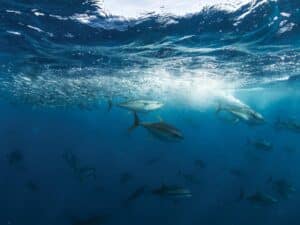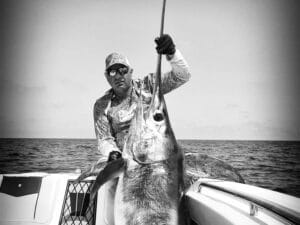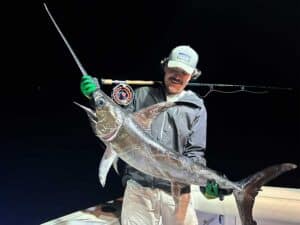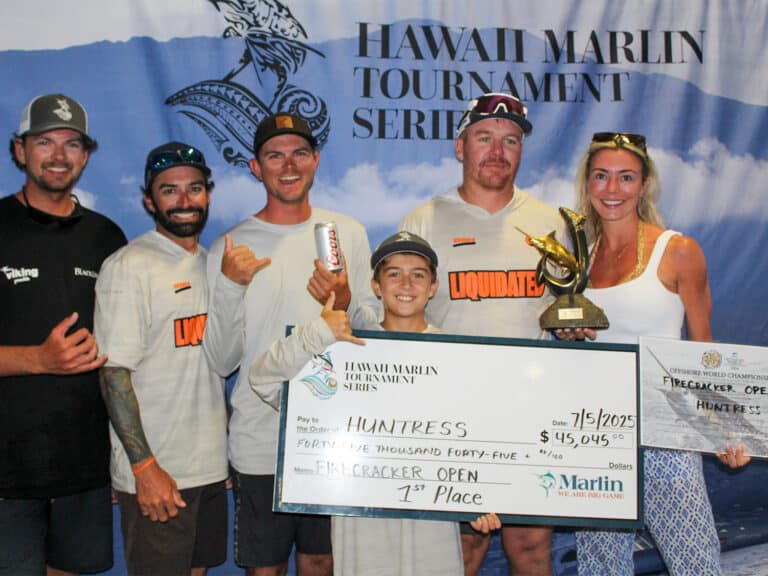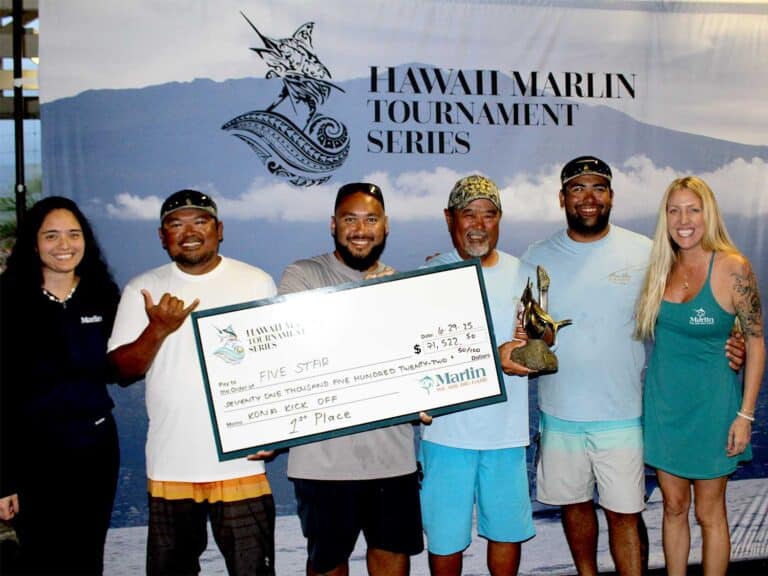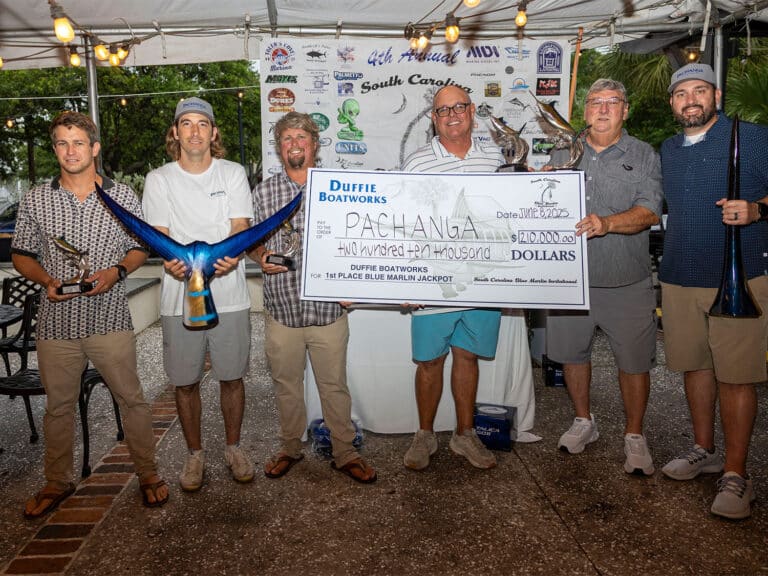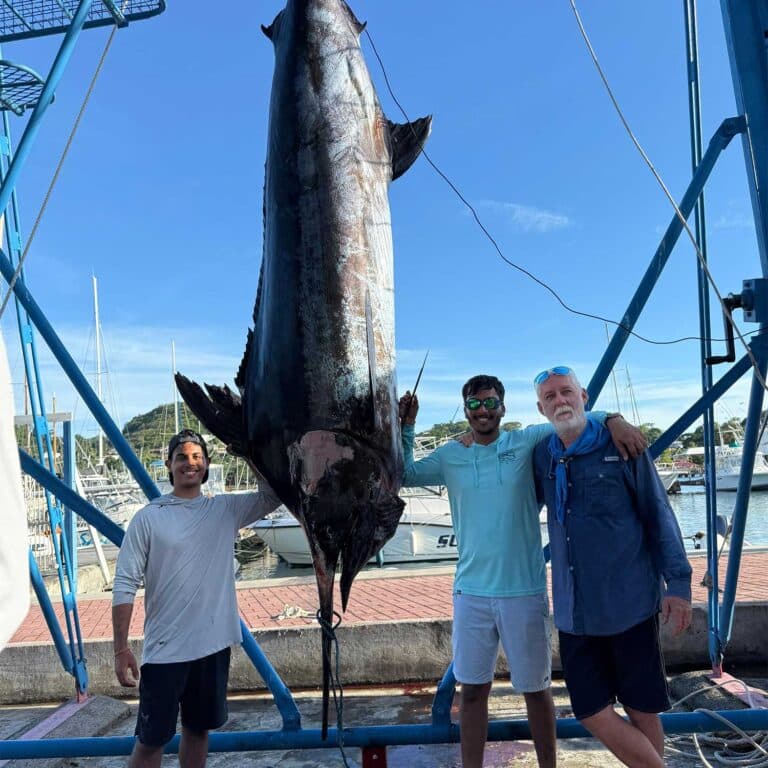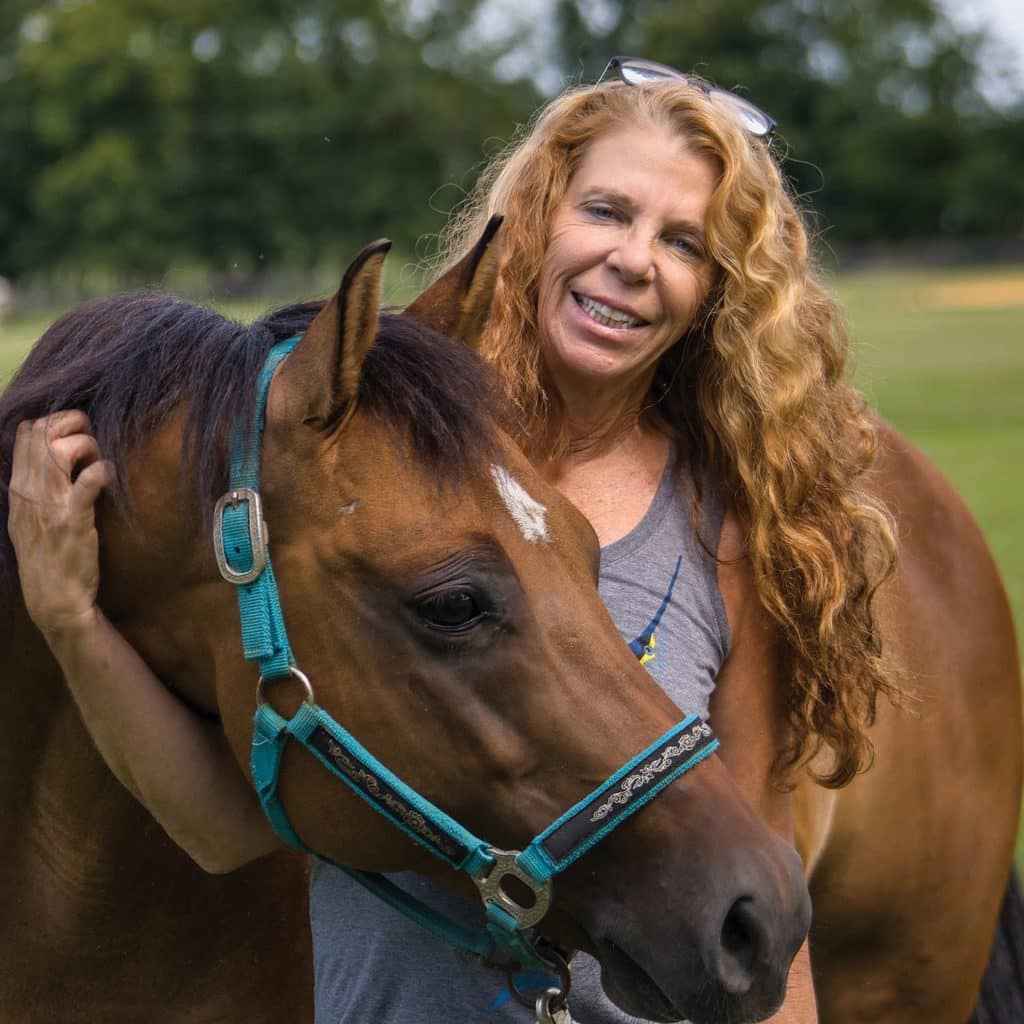
Special delivery: Sign up for the free Marlin email newsletter. Subscribe to Marlin magazine and get a year of highly collectible, keepsake editions – plus access to the digital edition and archives.
As a self-described boatbuilding groupie who came to North Carolina’s Outer Banks to work for Buddy Davis in 1991, Heather Maxwell has become as much of a fixture on the local fishing scene as the famous breakfast biscuits she serves each morning during the Pirate’s Cove Billfish Tournament. Maxwell built—and then later rebuilt—the tournament into one of the most popular in the industry. She also became a voice for the rich tradition of fishing and boatbuilding in the region. While she now spends most of her time on her small farm outside Rocky Mount, North Carolina, riding and competing with her horses, there’s no doubt that the juniper and salt still runs deep in her veins.
Q: How did you end up on the Outer Banks?
A: I grew up in Virginia Beach, and my first job was working summers at Fisherman’s Wharf Marina when I was around 16. Buddy Davis was the one who brought me down to the Outer Banks; he hired me as his purchasing agent, and then I got hired away by Pirate’s Cove around 1991. My sister Lee was the sales director at the marina, so our job was to market to the marine industry to sell slips and work with the charter fleet. I became a volunteer for the tournament when Barry Martin was the tournament director, and when he left, they hired me to run the event. So, I was a volunteer for eight years, tournament director for eight years; my mother was diagnosed with cancer and I had to leave for eight years; and this year was my eighth year back as the tournament director, working with the nonprofit that purchased the tournament in 2015.
Q: What led you to journalism?
A: Before social media, I used to write the fishing report at Pirate’s Cove and send it to our mailing list from the sales department. We had a rubber stamp that said “Important Fishing Information” so people would open it. I think writing is a lot like talking—you need a cadence that makes people comfortable. I wrote from the heart. I still do.
Watch: Take a ride on Wall Hanger, a waterjet-powered beauty from Spencer Yachts.
Q: Horses are a big passion of yours, right?
A: There are over 100 horses on Roanoke Island, and if you ride around Wanchese, you’ll just see horses everywhere. My sister rode when we were growing up, but I was always afraid of horses—not to ride them, but being on the ground—because they’re fight or flight. Then my daughter came to me when she was 6 and said she wanted to ride, so I found a place that gave lessons, and she just dived right into it. At 11, she was doing all these cross-country jumping competitions, with her medical information on her arm because it was so dangerous; it was craziness. Once I got over being afraid, I loved it. Horses are just so cool. It’s common sense and black-and-white, but you really have to use your heart and the brains that God gave you. It’s a lot like fishing: You wait for something to happen, and if you take the opportunity and match it with being prepared, then you get a really sweet ride. That’s what it’s all about.
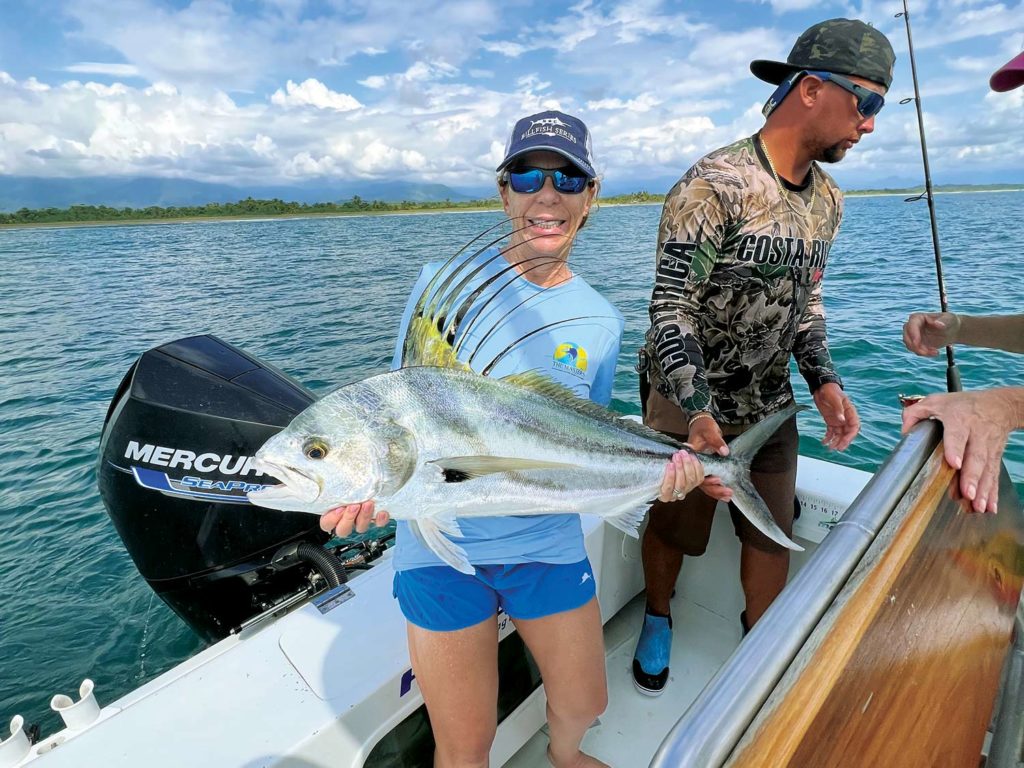
Q: What are some of the big changes that you’ve seen during your time at Pirate’s Cove?
A: For the first eight years that I ran the tournament, it was about bringing it to the attention of the industry. Pirate’s Cove and Alice Kelly are unique; it’s a week long and all in the same location, so the networking that the sponsors can do is really beneficial. It’s about fishing and fun, so you can come visit all the boat shops, take people out to dinner, and do all the boat-show stuff in your shorts and flip-flops. I think that’s the biggest change I brought to the tournaments. The family atmosphere and the fun were already there. When I started volunteering, we were doing 40 breakfast biscuits a day. When my mom got sick and I left in 2006, we were doing 800 biscuits a day, and this year, we did 500 each morning and ran out every morning. I think the breakfast biscuits kind of epitomize what we do with the tournament. We have the ladies pampering, and we do a kids’ camp to just try to accommodate the whole family. I remember the first time we went over $1 million in prize money—that was crazy. We also hit $100,000 in charity donations around the same time. All of those milestones came around the same time, and that was a big deal. Now we’re back up to donating $100,000 to the charities again, and that’s really cool.
Q: What was the challenge in bringing back a struggling event?
A: In the eight years that I was gone, the tournament went through six different tournament directors and was down to only 24 boats at one point. John Bayliss, Sam Peters and Chip Lacy wanted to take over the tournaments after that, and they ended up hiring me again. We set it up like a nonprofit corporation. I think we were at 58 boats that first year in 2015, were back up to 99 last year, and had 86 participating this year. We lost a few tower boats because of the trouble with Oregon Inlet. But if we have around 100 boats, I’m really happy because we don’t have the capacity to hold more. The boats are getting bigger, but the slips aren’t getting bigger, and I understand that.
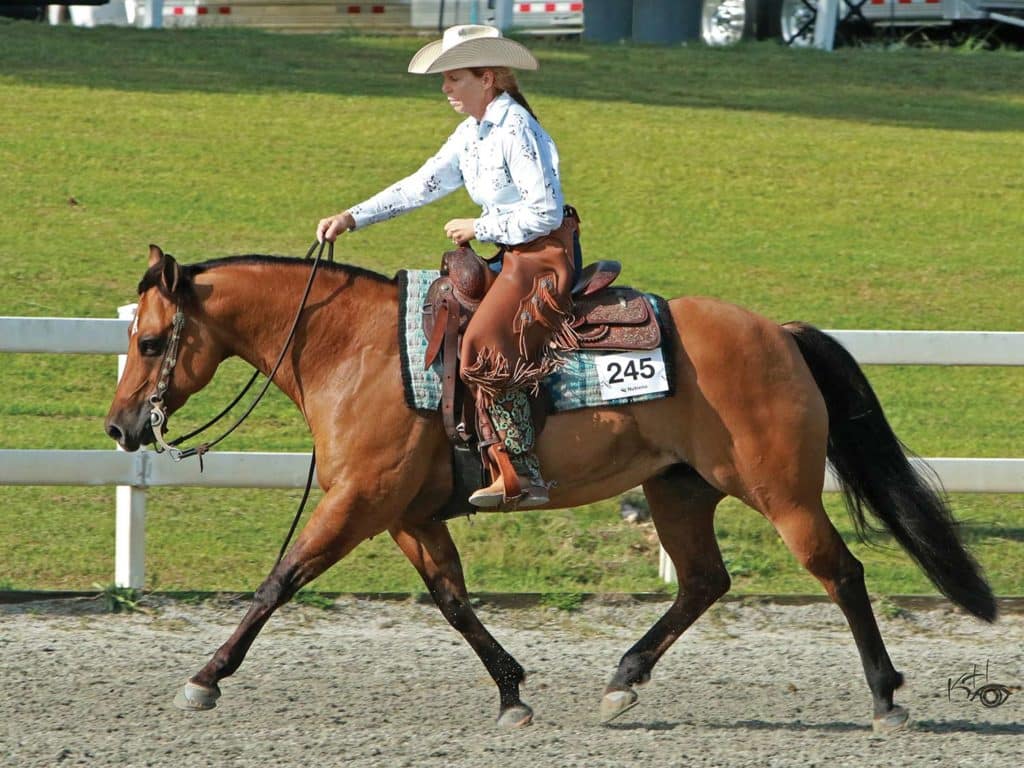
Q: What is your favorite and least favorite part of running the events?
A: I love my tournament volunteers, and I love making the people happy. Being able to thank the participants and sponsors for coming—that part I love. It makes me feel so good when someone tells us that we did a great job. I don’t like QuickBooks. There’s always something that comes up, but it’s the stuff that could have been avoided that irritates me, especially if it comes up and steals my nap on Wednesday. I get very few of those. Sometimes things aren’t perfect, but that’s the job—to make it look perfect.
Watch: Learn more about the past, present and future of the Offshore World Championship.
Q: I remember you wrote an article a while back about the unique “Oregon Inlet-isms” of the Outer Banks—do you have a favorite?
A: I love do the math. That was something Omie Tillett used to say, and now I say it all the time—it’s just common sense. Running a tournament is not rocket science; you just have to work hard and do the math. If you sell $100,000 in sponsorships, you can’t spend $150,000 on a bunch of crap that you really don’t need for a successful event. Another one I think about a lot is from Lee Perry on Deepwater. If he went in a building, he would always be sure to go out the same door—he thought it was bad luck to go out a different door. I’m not a very superstitious person, I don’t care about black cats or walking under ladders, but I still try to go in and out of the same door.
